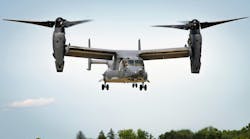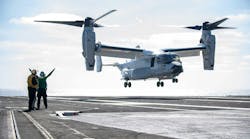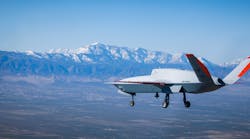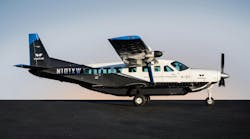Dec. 15--A judge in the U.S. Court of Federal Claims has ruled that it was "rational and reasonable" for the Air Force to ask parties to resubmit proposals on a lucrative light air support contract bid by Hawker Beechcraft and the Sierra Nevada Corp.
A first round of bidding resulted in the disqualification of Hawker Beechcraft from the competition and a contract award to Sierra Nevada.
But after Hawker Beechcraft questioned the award, a review uncovered problems with the process. The Air Force asked both parties to resubmit bids.
Then, Sierra Nevada filed a protest with the courts.
The judge, Christine Odell Cook Miller, has ruled that the corrective action was appropriate because "the documentation on the procurement was in shambles and would require significant effort to assemble."
The difficulty of the task was compounded by an uncooperative Air Force program manager who wanted to keep certain materials out of the record and also didn't trust Department of Justice counsel.
In addition, the ruling said that the documents appeared to show favoritism and bias toward Sierra Nevada.
"The court finds that ample evidence was before the Air Force to support its concern that the procurement was likely tainted by bias," the filing said.
It was reasonable to suspect that the bias had affected the outcome, it said.
From the outset, the Air Force acknowledged that the process to award a contract for light air support airplanes would be contentious "due to the zeal of the two competitors and the congressional stagecraft," according to a filing in the U.S. Court of Federal Claims.
The stakes are high.
At issue is a $350?million contract for 20 aircraft to be delivered over five years to the Afghan National Army Air Corp.
Hawker Beechcraft's proposal is to provide AT-6 attack aircraft for the project, while Sierra Nevada partnered with Brazil-based Embraer to offer the Super Tucano.
In April 2010, the Air Force issued a notice to solicit bids for a firm fixed-price contract. By Dec. 2010, Hawker Beechcraft and Sierra Nevada were the only parties submitting proposals.
In November 2011, the Air Force informed Hawker Beechcraft that it had been excluded from the competition because its proposal contained "multiple deficiencies and significant weaknesses" that the company hadn't corrected.
Hawker Beechcraft protested, but the protest was dismissed as untimely.
Hawker Beechcraft filed a complaint in the U.S. Court of Federal Claims after the Air Force awarded the contract on Dec. 22, 2011, to Sierra Nevada Corp.
It alleged that it had been erroneously excluded from the competition and that the Air Force had improperly evaluated Sierra Nevada's proposal.
Upon evaluation, an Air Force official found problems with the process.
According to the filing, the official noted that the administrative record was incomplete and unorganized, was poorly assembled and inconsistent with federal rules, that its technical evaluation process lacked supporting documentation and that there were personnel issues with an "uncooperative" Air Force program manager, who among other problems, argued with the Department of Justice and Air Force attorneys and a review team about what documents could and should be provided.
The official's observations were forwarded to the Secretary of the Air Force and the Air Force Chief of Staff.
Ultimately, Air Force officials decided to begin the process again, which led to Sierra Nevada's protest.
The Air Force is expected to award the new contract in January.
Reach Molly McMillin at 316-269-6708 or [email protected].
Copyright 2012 - The Wichita Eagle




